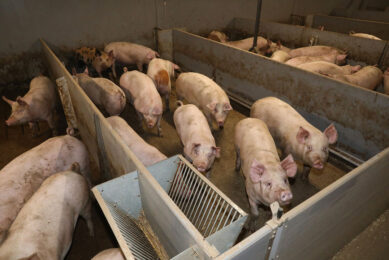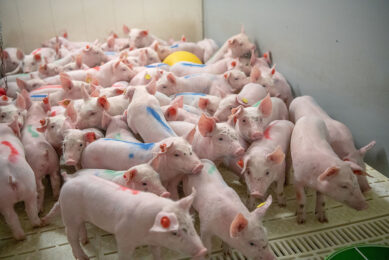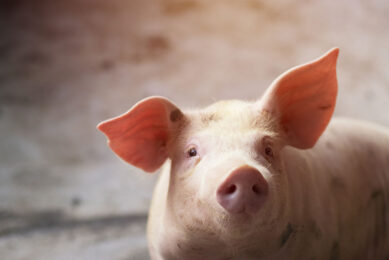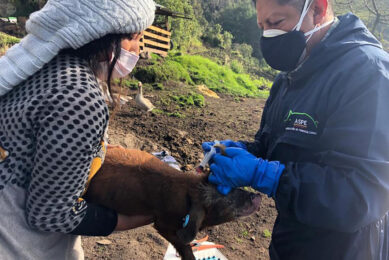Novel ‘Linda’ virus associated with congenital tremor
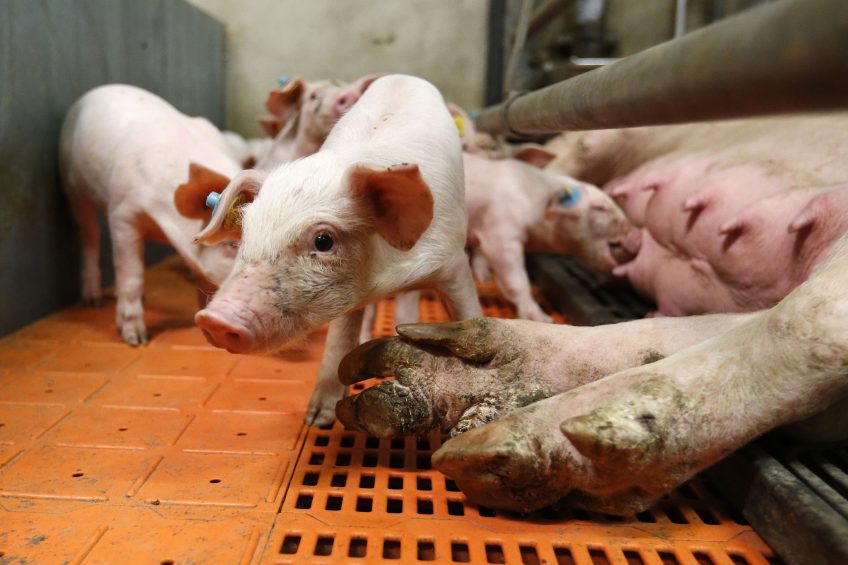
Researchers at the University of Veterinary Medicine in Vienna, Austria, have described a novel pestivirus that causes congenital tremors in piglets.
The virus was isolated from pig farms in 2015 and was termed ‘Lateral-shaking inducing neurodegenerative agent’ (Linda), the researchers wrote in a publication this month in Emerging Infectious Diseases. It was said to be related to the Australian ‘Bungowannah’ virus as well as Classical Swine Fever virus (CSFv).
Only last year, the connection was made between congenital tremor and pestiviruses. At the 2016 International Pig Veterinary Society (IPVS) Congress in Dublin, Ireland, two research teams (from the US and the Netherlands) simultaneously reported having found congenital tremor being related to a pestivirus. The virus as described by the scientists of the University of Veterinary Medicine is a new variety.
Prevalence of new pig virus is unknown
In an article on the university’s website, lead author Dr Benjamin Lamp, senior scientist at the university’s Institute of Virology, stated that as yet it is unknown how widespread the new Linda virus is in the swine population. He said, “We are currently developing a serological test to learn more about the prevalence of the Linda virus in Austria, i.e. about the number of piglets it infects.”
He added, “The test will be important because analysis of the virus has shown that it is distantly related to the virus that causes Classical Swine Fever. We cannot exclude the possibility that it might interfere with the official tests for swine fever.”
Video source: Institute of Virology, Vetmeduni Vienna, Austria
Analysis reveals connection with Australian virus
Till Rümenapf, the institute’s head, added that “Because it also infects the uterus of pregnant sows, the Linda virus could disrupt the development of the piglets’ cerebral cortex, like infection with the Zika virus. However, we should remember that the closest genetic relative of our new virus is an Australian.”
The phylogenetic analysis showed that Linda virus is related to the Bungowannah virus, described in Australia in 2006. This pathogen has to date been found only on 2 neighbouring farms in Australia, where it led to the death of over 50,000 animals.
Outbreak starting in 2015 in Austrian pig farm
The current outbreak started in 2015, when an Austrian pig breeder observed a number of newborn ‘shaking piglets’ on his farm. Such piglets suffer from a disease in which heavy damage to the brain and spinal cord causes severe shaking. The condition is associated with huge financial losses for the farm.
First, experts checked whether the animals were infected with the recently described pestiviruses. Despite comprehensive and highly specific tests, neither APPv nor another pathogen known to cause the disease could be found. However, the symptoms and the results suggested that a pestivirus was somehow involved, so the scientists designed a new type of diagnostic test that ultimately led to the discovery of a new pestivirus.
Dr Lamp commented, “Pestiviruses are known to infect foetuses of pigs, sheep and cattle, often targeting the central nervous system. But pestiviral infections are widespread only in hoofed animals and so not at all dangerous to humans.”
Novel type of PRRS virus
The publication of the current article comes at the same time when a novel type of PRRS virus has been spreading from Austria into Germany. This novel virus, named ‘Acro virus’, was also described by the University of Veterinary Medicine in Vienna.
The new publication in Emerging Infectious Diseases was written by Benjamin Lamp, Lukas Schwarz, Sandra Högler, Christiane Riedel, Leonie Sinn, Barbara Rebel-Bauder, Herbert Weissenböck and Till Rümpenapf, of the University of Veterinary Medicine, Vienna, Austria.




